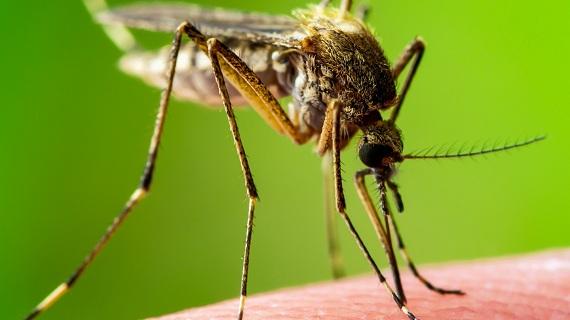
This year’s commemoration of World Malaria Day (WMD) has, again, brought to the fore the urgent need for stakeholders in the Nigerian health sector to develop a collective, innovative and transformative approach towards curbing the scourge of the disease in the country. At a ministerial press briefing, held on 26 April – a day after the global day for celebrating WMD – the Federal Ministry of Health, in conjunction with the World Health organization (WHO), deliberated on the WMD 2022 theme: “Advance Equity, Build Resilience, End Malaria”, with a national slogan “Every Effort Counts”.
The forum created an opportunity for stakeholders to brainstorm on the progress recorded so far in the country’s quest to eradicate malaria. Quite notably, one of the key resolutions reached was the need for a more effective synergy towards making the country malaria-free. Statistics indeed validate the expediency and exigency of such a strategy.
For instance, according to the WHO’s World Malaria Report, Nigeria had the highest number of global malaria cases (27 per cent of global cases) in 2019 and accounted for the highest number of deaths (23 per cent of global deaths). The report added that between 2016 and 2019, case numbers increased by 3.5 per cent from 293 to 303 per 1000 of the population at risk.
Latest reports show that Nigeria continues to account for the highest global malaria deaths at 31.9 per cent. The implication here is that the country’s malaria burden is not abating – thus necessitating a more decisive approach through synergistic innovation, prevention and control mechanisms. A key component of this approach will be a holistic review of previous efforts and strategies and the factors that have prevented them from yielding the desired results. There must not be any hesitation in overhauling measures and mechanisms that have not yielded very positive outcomes.
We must also emphasise the pivotal place of political will in malaria eradication. Countries that have succeeded in winning the fight against malaria did so because there was a conscious, concrete and compelling commitment on the part of stakeholders in the health sector – especially the government and policymakers – to achieve the goal. Sadly, from all indications and available proofs, the same cannot be said of Nigeria over the years. This is a fundamental reason that malaria continues to hold many communities in the country by the jugular.
One would expect, for example, that with the recent approval of the use of the first malaria vaccine by WHO, Nigeria, as the epicentre of global malaria infection, would be the most enthusiastic in preparing for the roll out of the breakthrough vaccine. There is presently nothing to indicate this – especially now that the atmosphere is charged with the desperation of politicking and electioneering campaigns. Unsurprisingly, some experts have opined that the malaria vaccine rollout in Nigeria will suffer the same irregularities that characterised the rollout of the COVID-19 vaccine.
We cannot but share similar concerns with these experts, considering the massive havoc that corruption continues to wreak on the fabric of the country’s health system. Time and again, there have been reports that anti-malaria drugs donated by both foreign and local agencies to hospitals in Nigeria sometimes find their way into the wrong places. Such drugs and other preventive kits that are supposed to be freely distributed to those who need it the mosts are sold by some unscrupulous elements within the health system. This dubious and old way of doing things cannot bring about new and better results. If government is serious about eradicating malaria, it must be willing to formulate the necessary policies, implement proven strategies, appoint the right people in the right places, and ensure that constant monitoring is done to review effectiveness.
Also worthy of note is the role of adequate financing. The Minister of Health, Dr Osagie Ehanire, has said that the country would be requiring a whooping N1.89 trillion, if Nigeria is to achieve a malaria prevalence rate of less than 10 per cent and reduce mortality rate to less than 50 deaths per 1,000 live births by 2025. Comically, the country’s total budgetary allocation to health in 2022 is N724.6 billion (4.2 per cent of the total national budget of N17.16 trillion). The only logical conclusion to be drawn from this is that the country is presently merely paying lip service to its malaria eradication project.
Against this backdrop, it has become imperative for the Federal Ministry of Health to think out of the box in terms of collaborating with the private sector, as well as international agencies and donors, to shore up its financial capacity to finance anti-malaria projects across the country. More importantly, all stakeholders must constantly carry out due diligence to ensure that funds and other donations for the eradication and control of malaria do not end up being misappropriated. It is our firm belief that the malaria burden in the country will succumb to the combined efforts and innovative inputs of all committed stakeholders.













